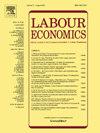多元社会中的母语教育与基础技能的掌握:菲律宾的证据
IF 2.2
2区 经济学
Q2 ECONOMICS
引用次数: 0
摘要
菲律宾是一个民族语言多样化的国家,使用 180 种语言。2012 年,政府大规模扩大了教学语言(LoI)的选择范围,从菲英双语教育转变为以母语为基础的教育,针对幼儿园至三年级的学生使用 19 种语言。这项政策的目的是在正规学校教育的早期阶段,在学校教学语言和学生母语之间建立更紧密的联系,从而提高学生的基础技能,并增强他们熟练掌握其他语言的能力。我们利用具有全国代表性的数据,评估了该政策对基础阅读和数学技能的影响,同时利用了学生组群之间的差异以及政策实施前后教学语言的差异。我们发现,该政策将儿童母语与学校教学语言之间的平均语言距离缩小了 43% 至 76%。然而,我们发现,在用菲律宾语或英语进行测试时,该政策对基础阅读技能产生了显著的负面影响。考虑到菲律宾扁平化的学习状况,这种影响的程度不容忽视。我们发现,该政策还对第一批完全接触该政策的学生的基础数学技能产生了负面影响。我们的研究结果表明,政府需要重新考虑以母语为基础的教育政策,将其作为在多元化社会中提高基础技能的工具。本文章由计算机程序翻译,如有差异,请以英文原文为准。
Mother tongue-based education in a diverse society and the acquisition of foundational skills: Evidence from the Philippines
The Philippines is an ethnolinguistically diverse country with 180 languages spoken. In 2012, the government massively expanded the language of instruction (LoI) options, a shift from a bilingual Filipino-English education to mother tongue-based education using 19 languages targeting students in kindergarten to grade 3. The policy intended to create a closer link between the school instructional language and students’ mother tongue in the early stage of formal schooling, which would improve foundational skills and increase the students’ ability to acquire proficiency in additional languages. We use nationally representative data to evaluate the policy's impact on foundational reading and mathematics skills, exploiting a variation between student cohorts and the variation in the instructional languages before and after the policy. We find that the policy reduced the mean linguistic distance between children's mother tongue and school LoI by between 43 % to 76 %. However, we find a statistically significant and negative effect on foundational reading skills when tested in Filipino or English. The magnitude is not negligible given the Philippines’ flat learning profiles. We find the policy also negatively impacted the foundational mathematics skills of the first cohort fully exposed to the policy. Our findings imply that governments need to reconsider the mother tongue-based education policy as a tool to improve foundational skills in a diverse society.
求助全文
通过发布文献求助,成功后即可免费获取论文全文。
去求助
来源期刊

Labour Economics
ECONOMICS-
CiteScore
3.60
自引率
8.30%
发文量
142
期刊介绍:
Labour Economics is devoted to publishing research in the field of labour economics both on the microeconomic and on the macroeconomic level, in a balanced mix of theory, empirical testing and policy applications. It gives due recognition to analysis and explanation of institutional arrangements of national labour markets and the impact of these institutions on labour market outcomes.
 求助内容:
求助内容: 应助结果提醒方式:
应助结果提醒方式:


